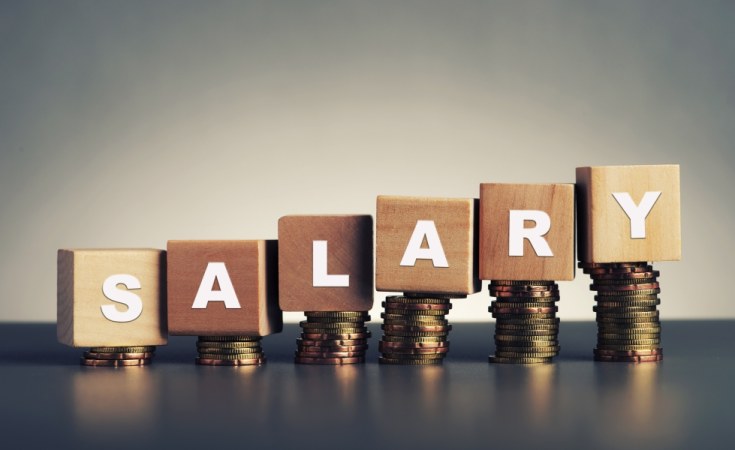By Jemimah Njuki and Jocelyn Chu
NEW YORK, Aug 4 2023 (IPS) - Last week, there was uproar in Kenya when a report about one of the largest banks, Equity Bank, revealed a 52 percent gender pay gap between their female and male employees working in similar positions. This difference is neither okay nor acceptable. However, documenting the gap is laudable because that is the first step in trying to fix it.
Of course, the gender pay gap is not unique to Kenya nor to the banking sector. Worldwide, on average, women only make 80 cents for every dollar earned by men. No country has successfully closed the gender pay gap. As a result of this gap, there's a lifetime of income inequality between men and women. This has many consequences, including that more women are retiring into poverty than men.
Worldwide, on average, women only make 80 cents for every dollar earned by men. No country has successfully closed the gender pay gap. As a result of this gap, there's a lifetime of income inequality between men and women. This has many consequences, including that more women are retiring into poverty than men
The gender pay gap is even worse for some demographics of women, such as women of color and women raising children. In the United States Black women are paid only 69.5% of white men's wages while Hispanic women are paid only 64.1% of white men's wages. In sub-Saharan Africa, women with children are paid 37% less than men, and in South Asia, they are paid 35% less.
Women's educational gains have not ended the gap. For example, in the U.S., despite gains in educational attainment, women still face a significant wage gap. While women are more likely to graduate from college than men, at every education level, they are paid less than men.
The wage gap actually widens with higher levels of educational attainment. Among workers who have only a high school diploma, women are paid 78.6% of what men are paid. Among workers who have a college degree, the share is 70.2%, and among workers who have an advanced degree, it is 69.8%. The gender pay gap also increases with age.
Many reasons have been advanced for the gender pay gap - some of them structural including occupational and sectoral segregation, devaluation of "women's work", societal norms, and discrimination, all of which took root well before women entered the labor market.
Within all sectors and both formal and informal economies, there is striking occupational segregation, with women typically occupying the lowest occupational categories, earning less, and having fewer entitlements to social security and pensions.
Women are overrepresented in sectors that are underpaid and undervalued, such as in social work and health care. They are still woefully underrepresented in leadership positions, even in industries where women constitute the majority of workers.
If women take time off due to unpaid care work responsibilities and then go back to a job market where pay histories are used to determine job entry bands, their pay ends up lower than their male counterparts. Discrimination and gender stereotypes also give rise to biased judgments and decisions, impeding women's advancement and pay.
Pay audits and pay transparency measures can help expose pay differences between men and women and identify the underlying causes. This is because addressing the gender pay gap requires knowing that it exists and what is causing it, which is why the Equity Bank sustainability report, while heavily criticized, is important.
A study in Finland found that 73% of human resource representatives found equal pay audits, in line with national legislation on pay transparency, to be useful in promoting workplace equality.
In fact, about 55% of enterprises surveyed reviewed job descriptions and/or altered wages, continued examining their gender pay gap or reformed their remuneration framework, because of information discovered from audits.
Pay transparency can also provide women, unions and other employees with the information and evidence they require to negotiate pay rates and provide as well as provide them with the means to challenge potential pay discrimination.
Other actions that can help close the pay gap are laws that require reporting of pay by gender, race, and ethnicity, and that prohibit employers from asking about pay history. Requiring employers to post pay bands when hiring has also been shown to have impact.
While this is positive, further action is required from governments and employers to address the gender pay gap. The Equal Pay International Coalition, convened by UN Women, the International Labour Organization and the Organization for Economic Cooperation and Development is a mechanism to bring together stakeholders to commit to pay transparency and to closing the gender pay gap. But while many countries have adopted pay transparency legislation, more time is needed to assess the impact and effectiveness of the measures adopted.
There is also need for policies that lift wages for most workers while also reducing gender and racial/ethnic pay gaps. Minimum wages and strengthening workers' rights to bargain collectively for higher wages and benefits is critical for closing the gender pay gap.
Women, who tend to occupy lower-paying jobs, have been shown to benefit the most from increases in minimum wages. An analysis of the increase of minimum wages in Poland between 2008-2009 concluded that higher minimum wages contributed to a lower gender wage gap among young workers.
Deeper changes in societal and cultural norms, especially those on care for children and interventions that seek the equal sharing of responsibilities in caregiving and domestic work by men and boys are needed.
The inequalities between women and men in the world of work will persist unless we act. And we need to act together.
For Equity Bank, this transparency is the first step in taking action to close this gender pay gap. A lot, however, depends on what they do next.
Jemimah Njuki is the Chief, Economic Empowerment at UN Women, and an Aspen New Voices FellowJocelyn Chu is a Programme Specialist at UN Women


